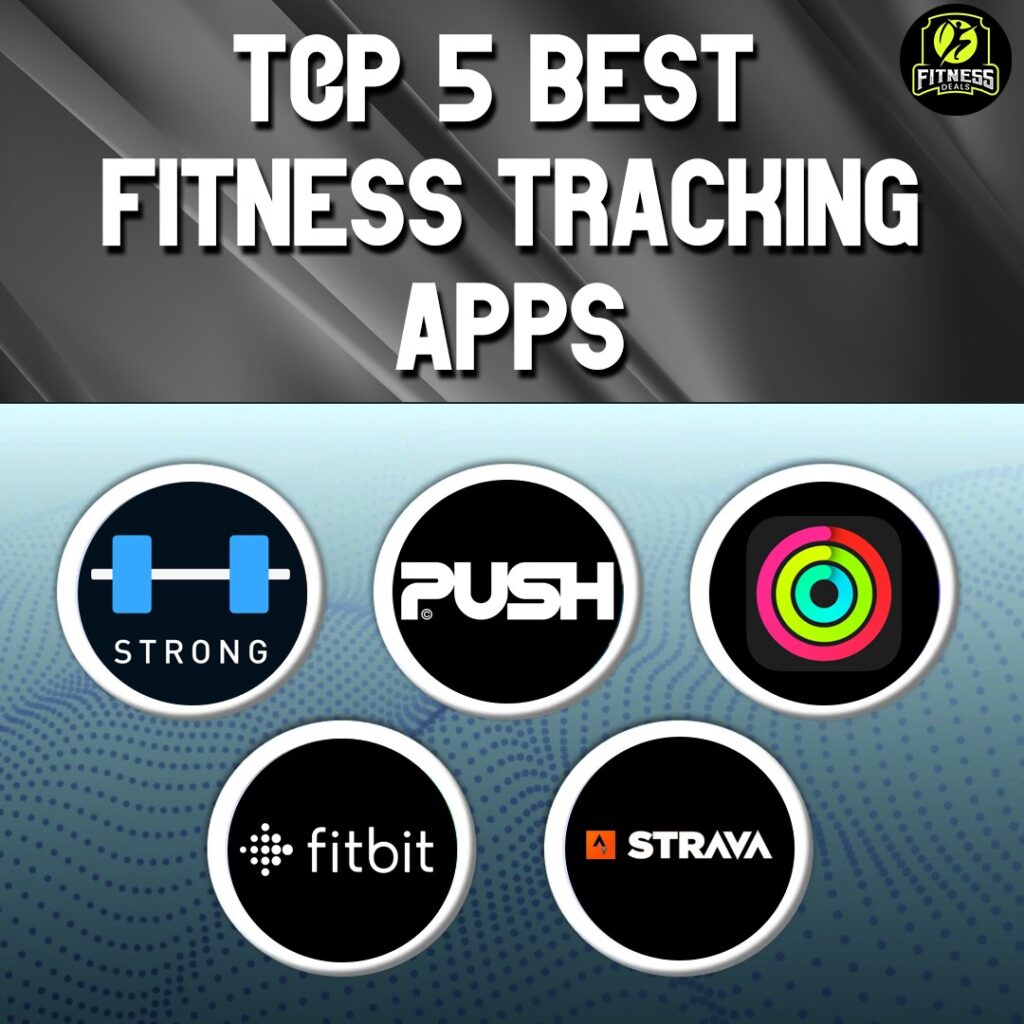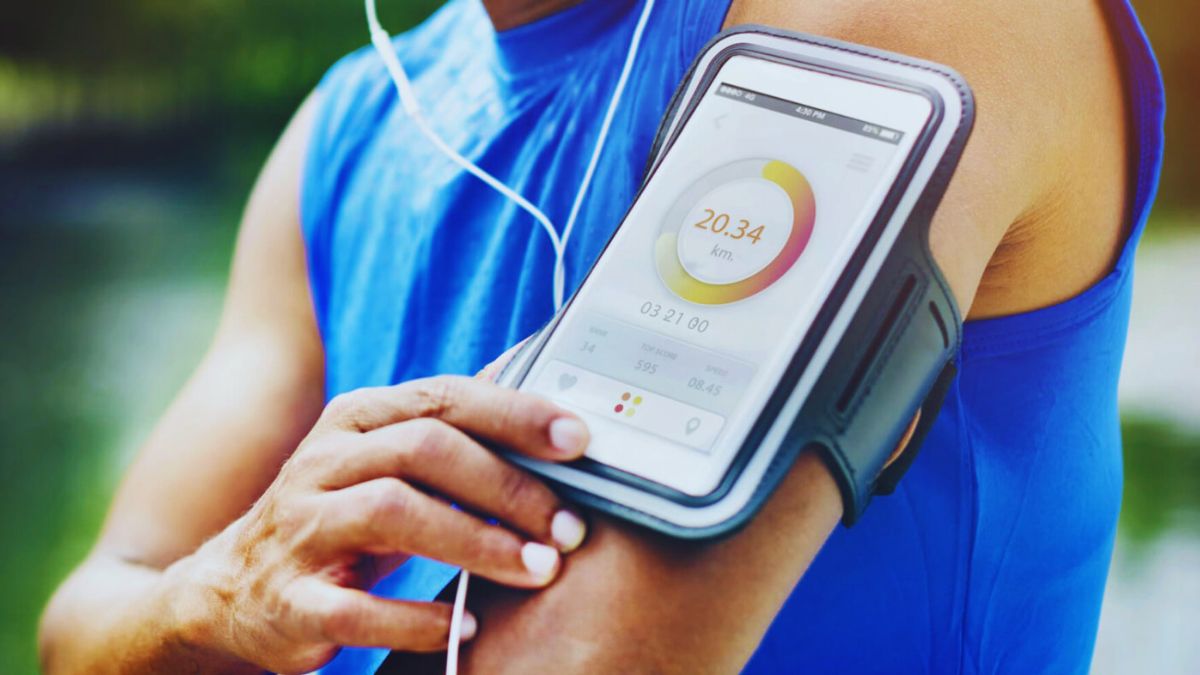For a fitness enthusiast, staying fit and working on improving the overall fitness is the most crucial part. Albeit, along with the actual progress comes the aspect of monitoring the progress too, which is as integral as the real workout and exercise grind.
With the latest advancements in technology, advent of AI (Artificial Intelligence) and heightened competition, there are several fitness-based apps that have been launched in the market for enhancing your workout. Before choosing an app, consider your specific fitness goals, preferred workout types, and desired features like social sharing or wearable integration.
Several apps effectively track fitness progress, offering features like workout logging, progress tracking, and integration with wearable devices. Some popular options include Strava for running and cycling, Hevy for weightlifting, and Fitbit for overall activity tracking. For beginners, apps like Google Fit or Samsung Health offer a good starting point.
If you’re overwhelmed by the number of fitness apps available today, you’re not alone. There are seemingly abundant fitness apps available, and from logging your personal bests to tracking your pickleball wins, each has its own niche.
What Makes it the Best Fitness App?
Despite the particular features, there are some universal traits that all great fitness trackers have in common, no matter their niche.
- Ease of Use – One of the most important criteria is how user-friendly the app is. It has to be easy to stop, start, and log activity. If it logs overall physical activity like daily steps or basal metabolic rate, not just workouts, then it’s even better.
- Appropriate metrics: The best fitness app tracks the right things for the activity you’re doing—like heart rate, calories burned, distance, splits, elevation gain, plates/weights, and personal bests (PBs) or personal records (PRs).
- Accuracy: For a fitness app to make sense, the results it tracks can’t be wildly off-base. If it works well with a wearable like an Apple Watch, that will absolutely increase the accuracy.
- Affordability – Another prime factor is the price point. As it is you are paying for the gym or your fitness equipment. The best fitness trackers shouldn’t be burning a hole in your pocket while procuring it.

In this article we have covered the 5 best and most talked-about fitness apps of 2025, which have gained cult popularity and provide one-stop solution for all your fitness needs.
- Strava – One of the best and top-rated fitness apps, especially designed for those who enjoy some fitness-related competition. Available for both iOS and Android software, this app has become a favourite amongst fitness enthusiasts. Over the last five years, Strava has become the go-to app for tracking runs, hikes, and more. Download by clicking on Strava: Run, Bike, Walk – Apps on Google Play
Strava Pros:
- Accurate mapping of outdoor activities
- Live beacon tracking for safety
- Amazing social and community features
Strava Cons:
- Not suitable for indoor workouts
- Mediocre wearable connectivity
- Apple Fitness – An exclusive iOS app, this is the benchmark fitness application of modern times. If you’re an avid Apple customer, Apple Fitness might be the first fitness tracker you try. That’s because it comes standard—and free—with every iPhone. It serves as a great multi-purpose all-around fitness app, which tracks both workouts and general activity levels. Download by clicking on Apple Fitness+ – Apple
Apple Fitness Pros:
- Beautiful and appealing interface
- Seamless wearable connectivity
- Varied standard workout types
- Includes all key features for free
Apple Fitness Cons:
- Questionable accuracy for less-common workouts
- Mediocre recovery tracking
- Not amazing for tracking strength training
- STRONG – Another app that is available on both iOS and Android platforms, it is a popular and reputable app for strength training. It’s a template-based app, implying that you can choose or create a personalised plan for your workout and then save it for future use. Download by clicking on Strong – Workout Tracker & Gym Log
Strong Pros:
- Easy to Use Templates
- Comprehensive exercise library with Demo videos
- The paid subscription offers great analytics, including exercise volume and set tracking
Strong Cons:
- Only tracks strength training
- Not the most beginner-friendly app
- PUSH – One of the best fitness apps floating in the market currently is PUSH. It uses AI to generate a strength training program for you, based on the science of progressive overload. You can also manually create a program yourself, and simultaneously move you through a program of weight-bearing exercises. During the onboarding, it asks a series of questions and then creates a personalized program for you to follow. Download by clicking on PUSH Workout & Gym Tracker – Apps on Google Play
PUSH pros:
- Personalized, science-backed training programs
- Predictive analytics to track future progress
- Stylish, sleek and advanced interface
PUSH cons:
- Only tracks strength training, not cardio
- Not for freestyle workouts or as per convenience
- No wearable connectivity

- Fitbit – Fitbit, an application owned by Google is a great Apple Fitness alternative if you don’t have an iPhone or Apple Watch. In addition to activity tracking, the app offers sleep, food, water, menstrual cycle, glucose, and weight tracking—which are great features if you’re trying to be healthier overall. It also offers daily readiness scores if you use it with a Fitbit wearable. The Fitbit app offers two tracking options: live tracking and manual tracking. Download by clicking on Fitbit – Apps on Google Play
Fitbit Pros:
- Decent all-around activity tracking, plus sleep and nutrition
- Achievement badges for motivation
- Daily readiness scores with premium subscription
Fitbit Cons:
- Needs a Fitbit wearable to be really accurate
- Requires manual tracking for some activities
Ultimately, the true mark of a good fitness app is whether you use it—and keep using it. Fitness, like other lifestyle choices, is deeply personal; everyone needs something different out of their fitness journey. Whether you hike, bike, or ride a trike, there’s an app for you out there.



